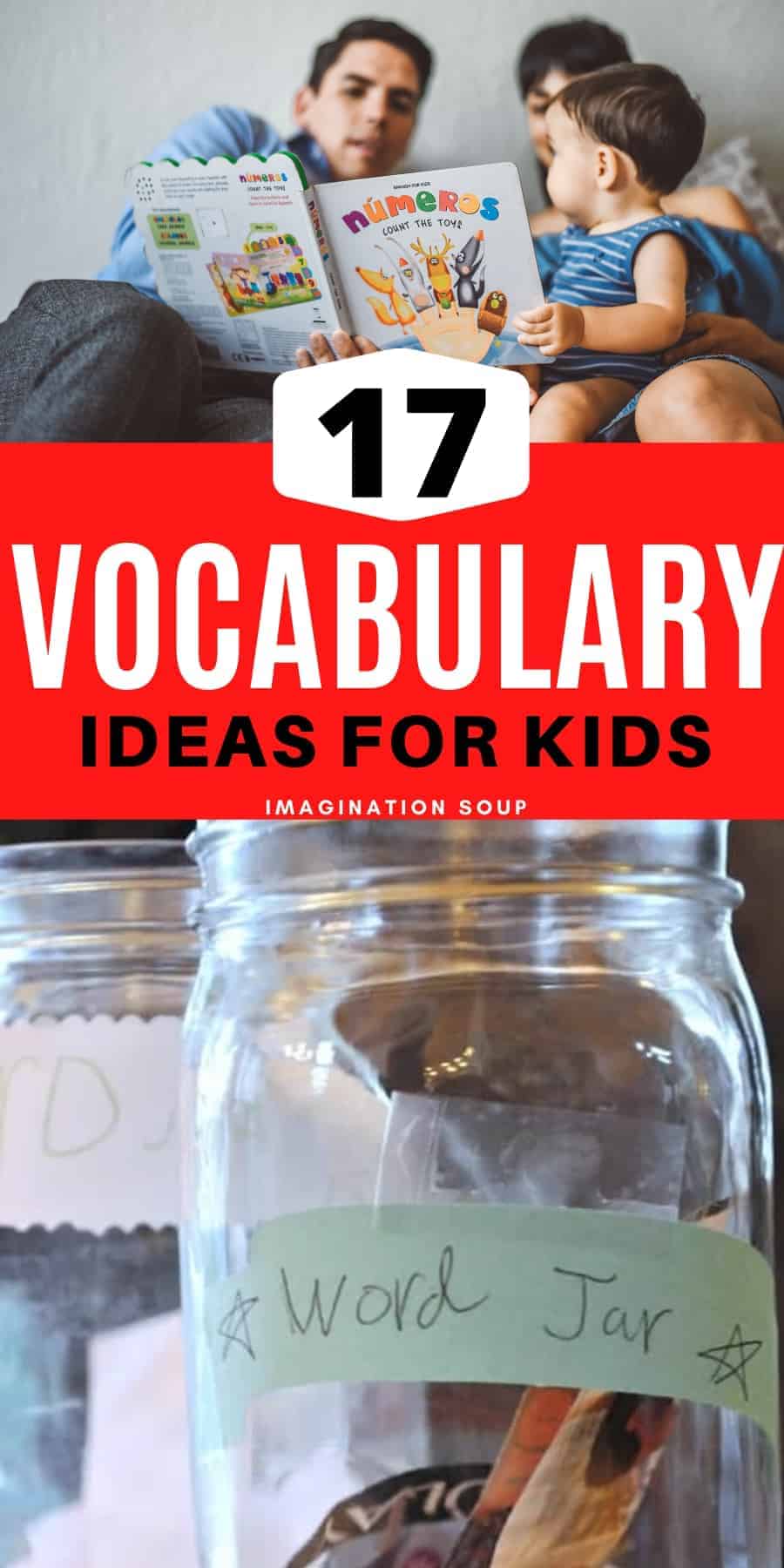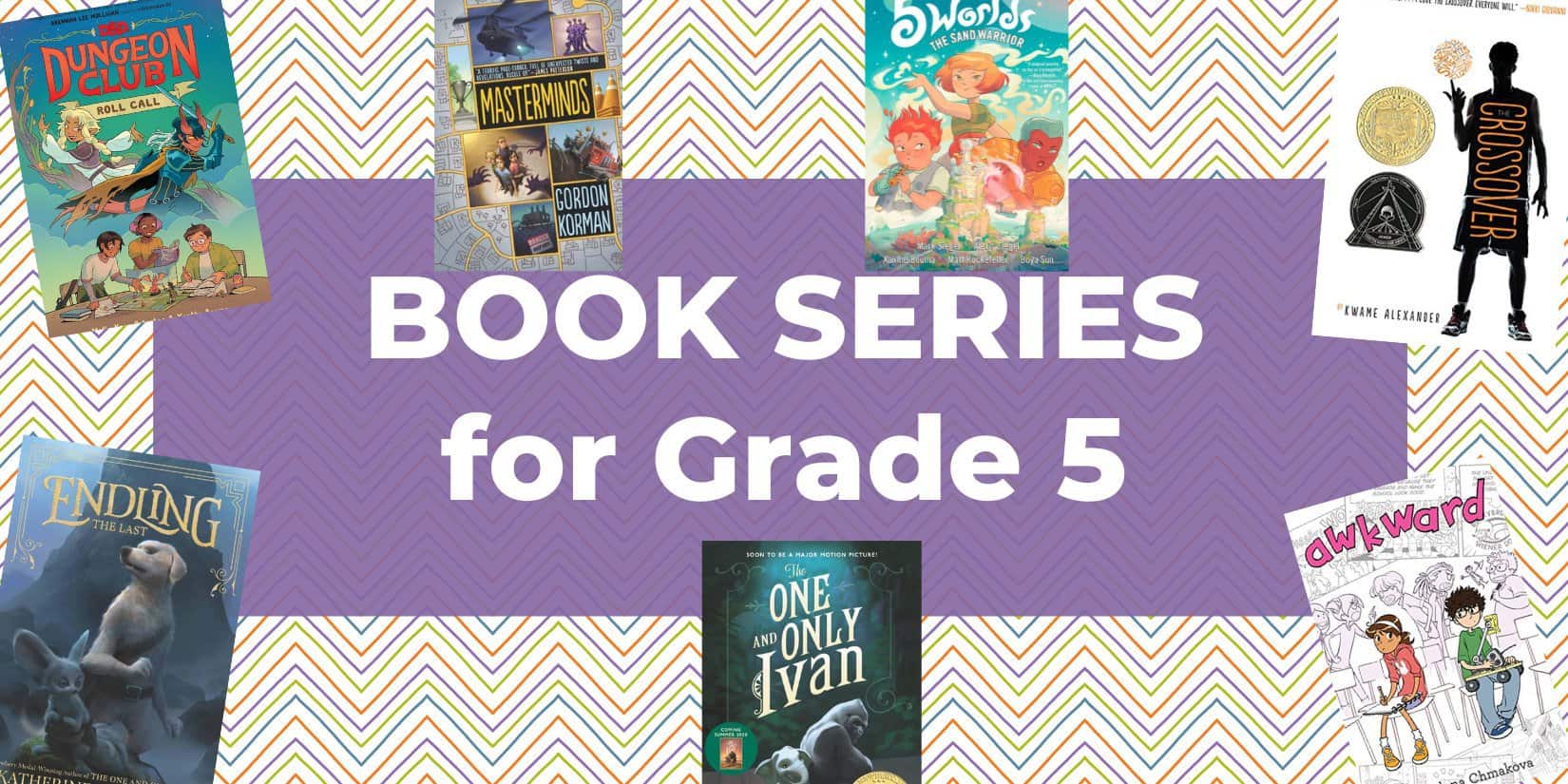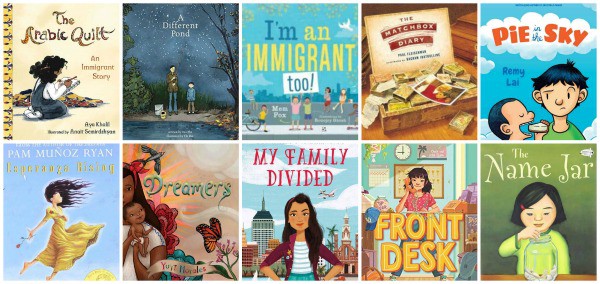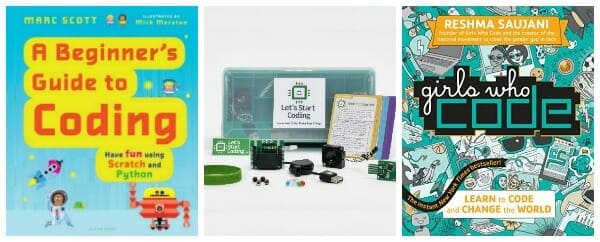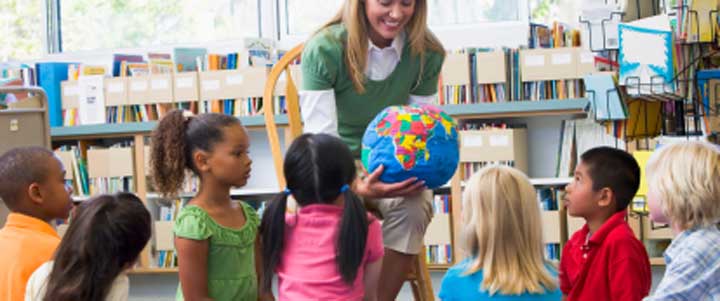17 Ways for Kids to Learn New Vocabulary
This post may contain affiliate links.
Fluent readers need a big vocabulary. The more words a child knows, the better reader and writer they are. (Anderson and Freebody, 1981; Graves, 1986; Stahl, 1998) (DOE, NAEP, 2011) It’s up to us as parents to help our children learn and develop a large vocabulary.
The best way to learn new words is to use them, play with them, listen to them, and apply them. While it is possible to learn new words out of context, like with flashcards, Vocabulary.com, or word-of-the-day calendars, to actually have a word stick in a child’s memory, you need to use it. Repetition and application are essential.
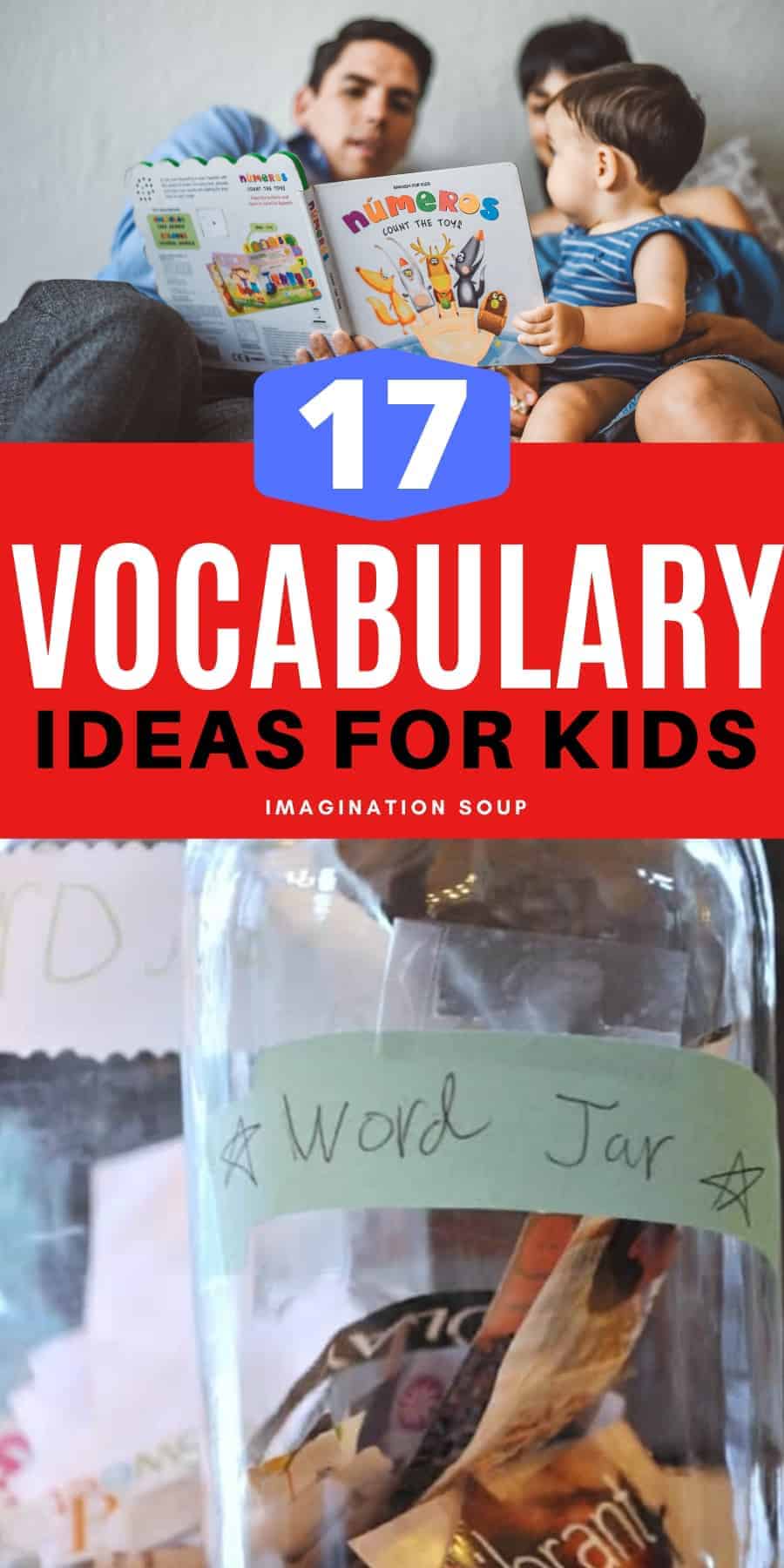
How to Help Your Kids Learn New Vocabulary
What can you do to help expose your children to new words–and then use those words? Here are some activities to try.
1. Expose your child to vocabulary words — talking, singing, listening!
2. Have conversations.
Talk to your children using a rich vocabulary. Explain words. Listen and respond to children’s dialogue with new words and related information. (This is often called “Motherese” — it’s when kids say something in kid talk such as “me want ma” and the parent responds with, “yes, you want more milk, don’t you? You are still thirsty.”)
According to a study by Meredith Rowe in 2012:
- Children under the age of two benefit from exposure to lots of words.
- Two- and three- year olds benefit from hearing a variety of sophisticated words.
- Preschoolers benefit from conversations about past and future events as well as explanations.
3. Provide experiences.
Parents make new experiences (and familiar ones) rich with learning when pointing out new things and talking with kids. Introducing new words helps kids acquire vocabulary.
4. Read aloud stories.
Reading to children is one of the most beneficial activities you can do for their literacy skills. Find read aloud book lists for grades 1 to 8.
5. Invent your own stories.
6. Read.
The more your child reads, the more words they learn. Find book lists by age.
7. Read a variety of genres.
We learn a depth of vocabulary by reading fantasy, mystery, sci-fi, nonfiction, poetry, and more.
8. Write.
Practice the words you’ve learned by using them in writing.
9. Sing.
I’ve learned so many Spanish words by singing along to popular songs. Kids will also learn words in their own language by singing.
10. Pretend Play.
You can support vocabulary acquisition by introducing play specific words to children. If you’re playing doctor, teach the word stethoscope, for example.
11. Word Play.
Children 2 – 5 Years Old:
I Spy with word clues (“I spy something that starts with t-“), I Spy things that start with B (great for the car), or rhyming words (“I spy something that rhymes with dock.”)
Children 6+:
Mad Libs, Haikubes, Going Camping game (“I’m going camping and I’m going to bring an alligator . . . “), telling jokes, WordARound, Scrabble, Bubble Talk, Sight Word Games, Boggle, Bananagrams, Yamodo, Blurt.
12. Word Collections.
13. Make Inferences.
When you’re reading and find an unknown word, help kids figure out what it means by using the context clues. I usually ask kids to substitute another word to see if it makes sense in the context of the sentence.
14. Share Cool Words.
Pick a word from your reading that you think other people in your family don’t know. Share what it is, the meaning, and use it in a sentence. Act it out if you can.
15. Do Word Puzzles.
Do crossword puzzles, Jumble, cryptograms, word searches, and play Word Games.
Print out this indoor word scavenger hunt and look for favorite and new words
You Might Also Like:
Lemony Snicket’s 13 Words
How to Improve Your Vocabulary
Word Play with Kids – Inventing Words
Easy Found Poetry with Magazines
Follow Melissa Taylor’s board Writing Activities for Kids on Pinterest.
